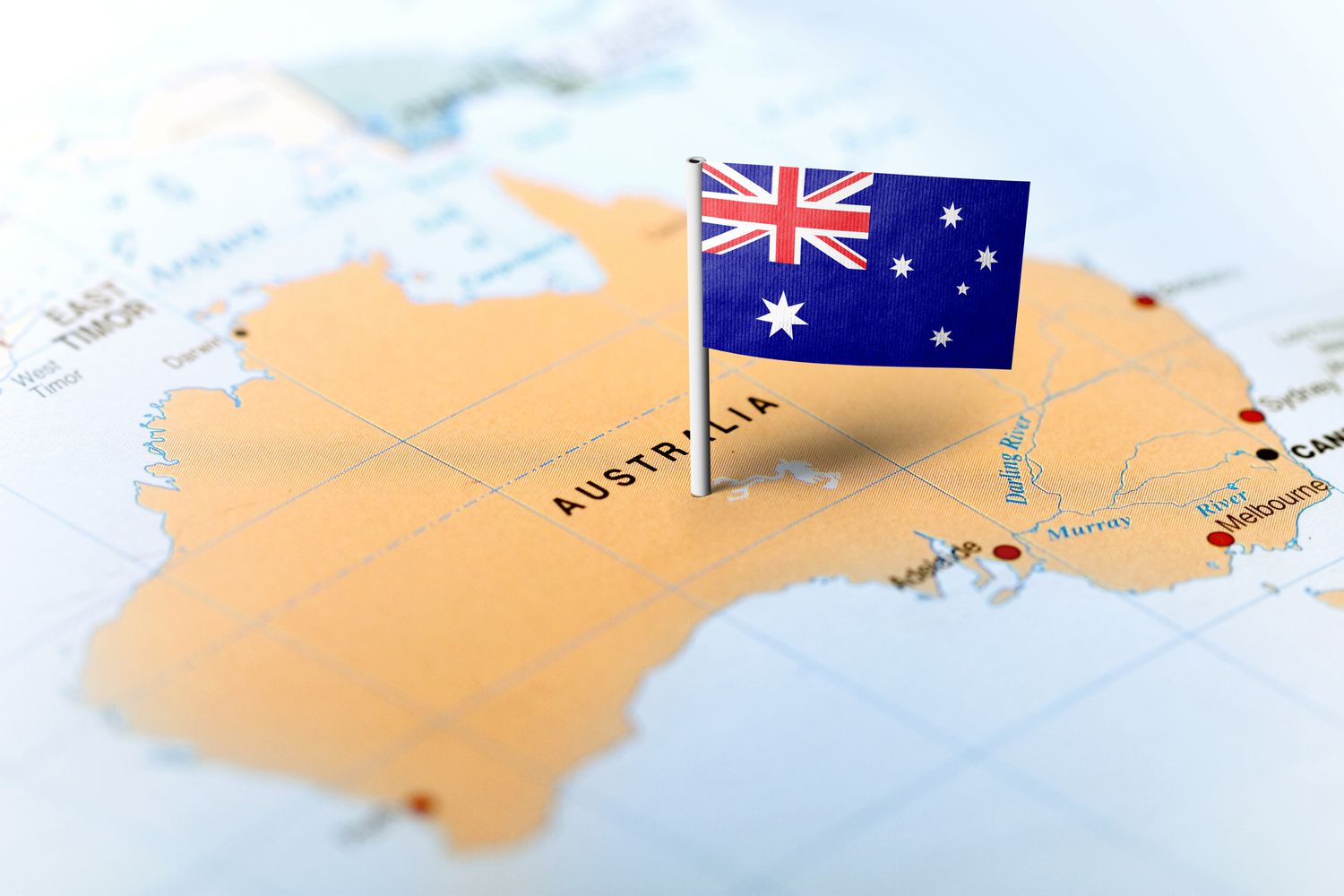Study in Australia
⇒ About Australia
Australia’s education system is three-tiered, with basic, secondary, and higher degrees of education. The university is Australia’s highest level of education. Australia has 43 universities: 40 public universities supported by the government, two overseas institutions, and one private specialty university On-campus bachelor’s degrees and postgraduate courses are available to students (including certificate, postgraduate diploma, master, and doctoral programs). Practical skills and industry training are the core of vocational courses. Vocational training courses are available through government-funded institutions such as TAFE (Technical and Further Education) or private organizations. Several colleges provide students with college credit for university courses.
Aside from their high quality, Australian universities have a diverse range of programs and courses to offer. As a result, a student will always discover a curriculum that piques his interest and expands his knowledge. Furthermore, Australia has 1100 institutions spread around the country, driven by a commitment to research and innovation. Every higher education provider in Australia has facilities such as laboratories and contemporary classrooms to enhance students’ education. For individuals wishing to take advantage of all the benefits of research activities, Australia is the place to be.
Although Australia is largely Christian culture, many religions are represented and are freely practiced and protected by law. Aussies are warm, frank, and casual in their interactions with one another because they believe in equality and a “fair go” society.
Individuals who work in low-skilled or “blue collar” jobs, such as cleaners and bus drivers, are treated equally with those who work in professional jobs. It is also prohibited to discriminate against individuals on the basis of race, gender, religion, or sexual orientation. Punctuality is essential; if you are running late, you should always notify the person you are meeting as a courtesy. People in Australia form queues to buy food, wait for a certain service, board public transportation, and so on, and it is considered disrespectful to push ahead of someone who is already queuing. Individuals frequently use the first name, even while addressing revered seniors, as long as they know them or have been formally introduced to them.
Students are required to undertake independent research, collect and analyses data by themselves or in groups, raise issues, and participate in discussions and debates with other students and professors in Australia, as in most other nations. Students spend a significant amount of time performing their own research in libraries and laboratories. To be a good student, you must adapt to these new learning and assessment approaches. Students are constantly evaluated through essays, presentations, quizzes, and assignments, among other things. One thing that may surprise you is the level of access you will have with your tutors and professors. If you are having an academic problem, talk to them about it; don’t let a minor issue turn into a significant one for you.
When visiting Australia, you will encounter a different culture and way of life than you are accustomed to. If you don’t obtain good information and awareness about the country, you may face a “culture shock” or the “blues of new place”. It is critical to monitor people’s behaviors, reactions, and conventions. Learn everything you can, but never change your traditional values or your true self. Do not be intimidated or put off by the preceding text. Just because a country is unique does not necessarily make it inferior. On the contrary, Australia is one of the world’s most multicultural societies.
Almost 20% of Australian residents were born abroad, and they come from over 200 different countries, making Australia a true “melting pot” nation. Around 20% of Australians speak a language other than English at home.

⇒ It’s a major decision to decide to study abroad. you may be concerned about what and where you will study. Great institutions, magnificent nature, lively cities, and many oceans are just a few of the reasons why many international students choose to study in Australia. While studying abroad can be intimidating, the benefits in terms of personal and academic growth can be great. This multicultural country offers a wide range of chances for international students.
⇒ Whenever it comes to learning in Australia, foreign students have a wide range of opportunities. Australia has 43 universities in total, with 40 being Domestic, two being global, and one being commercial. It’s a matter of quality rather than quantity, having six Australian colleges scoring among the world’s top 100.
⇒ Most international students can understand and be recognized since People in Australia speak English. But, understanding the slang may take a bit longer. If you’re having trouble keeping up with a conversation, ask someone to clarify the slang to you. The variations that Australians have come up with will fascinate you.
⇒ If you’ve ever contemplated studying abroad, you should learn more about the Australian education system. There are several private and public schools to pick from – study and research in Australia ensure that you will find your dream world-class program. There are 1200 academic organizations for international students, providing 22,000 different courses. Isn’t that a great option? You can learn English, Vocational Training (VET) in the top colleges, or Further Education at a University or TAFE (Technical and Further Education). All classes will, of course, be held in English.
⇒ Australia is the world’s third most popular option for overseas students. Currently, nearly 700,000 international students are living in Australia. Six of the world’s top 100 universities are located in Australia. In the Times Higher Education World University Rankings 2020, the University of Melbourne, Australian National University, University of Sydney, University of Queensland, University of New South Wales and Monash University were all ranked in the top 100 universities. Nearly 1100 Australian educational institutions offer approximately 22,000 courses. Australia is home to seven of the world’s best student destinations (in order; Melbourne, Sydney, Brisbane, Canberra, Adelaide, Perth and Gold Coast) Almost 2.5 million international graduates in Australia are making a global difference. There have been 15 Nobel laureates from Australian universities.
Fast Facts
⇒ Despite being relatively young in comparison to universities like Harvard in the US or Oxford in the UK, Australian educational institutions are among the best. In the top 100 universities, according to the Times Higher Education World University Rankings 2020, were the University of Melbourne, Australian National University, University of Sydney, University of Queensland, University of New South Wales, and Monash University.
⇒ Australia’s higher education system is excellent. Its system is ranked eighth in the Universities 2019 U21 Ranking of National Higher Education Systems, ahead of France, Germany, Norway, and Japan, with more than 22,000 courses spread across 1,100 institutions.
⇒ According to the 2018 Department of Education International Student Survey, scores for satisfaction with living and studying in Australia are almost 90% for international students.
⇒ More than 80% of onshore students intend to complete their studies in Australia, according to recent sentiment surveys by Study Australia, showing they are extremely satisfied with the standard of education they have been receiving.
⇒ Australian cities were great places to live and study but now it’s official! According to QS Best Student Cities 2019, almost all of our major cities – Melbourne, Sydney, Brisbane, Canberra, Adelaide, Perth and the Gold Coast – are in the world’s top 100 student cities.
⇒ The Department of Foreign Affairs and Trade is in charge of administering Australia Awards Scholarships, which are long-term awards. According to bilateral and regional agreements, they seek to support the development requirements of Australia’s alliance partners.
⇒ According to the International Education Association of Australia, 2.5 million foreign students have earned degrees from Australian universities over the past 50 years. These graduates have joined an alumni network that spans the globe and is having an impact there.
You want to career growth in Australia?
Apply Today!
Drop your any quiries regarding Study Abroad & Test Preparation, Out team will quickly connect with you to solve your quiries
